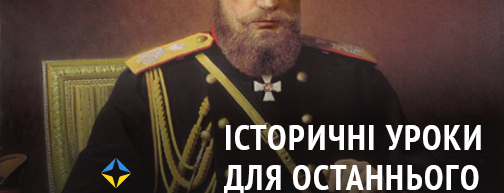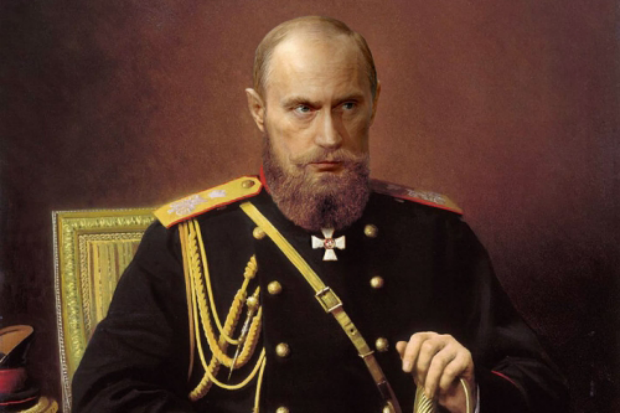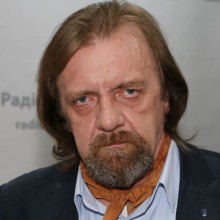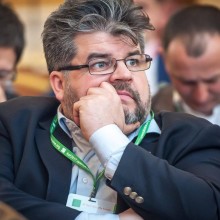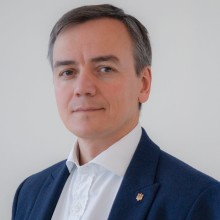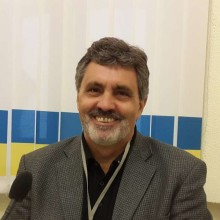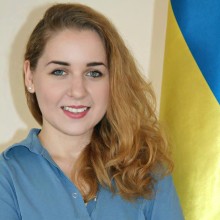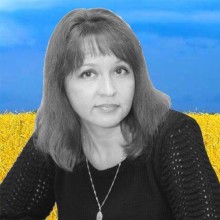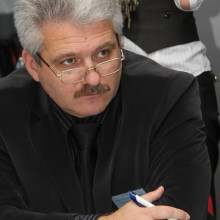“Madness is very costly for a statesman and sooner or later that price has to be paid.” Henry Kissinger, Diplomacy
Perhaps a shock of a judoist who unexpectedly fell victim of a trick throw best describes what Europe and the world felt in early 2014. By annexing Crimea Vladimir Putin brazenly destroyed the system of international relations that had taken decades of efforts by states and politicians to establish and that seemed to be invincible since the end of the WWII.
The media and expert circles now debate on the explicit and implicit motives for the step of the totally unknown before 1999 in Russia and the world mediocre clerk and now a well- known Russian playboy and Kremlin’s ruler - - President Vladimir Putin.
Some may consider him atypical and unlikely master of Russia, but is he really? Looking into Russian history, one has to admit that no matter how different the images of the Russian rulers appear -- from the first “land gatherer” and apologist of strengthening the leading role of Muscovy, Ivan Kalita, to an accidental darling of fortune Emperor Alexander I whose troops 200 years ago entered Paris and the “Leader of the People”, a bloody ghoul Stalin -- all of them had one thing in common-- a relentless thirst for expansion and conquest of the new lands.
Today's Russia that considers itself the heir of Muscovy, the Golden Horde, the Russian Empire and the Soviet Union, has naturally absorbed not only their expansionism, but also, the specific despotic nature of government that does not tolerate any dissent and that Russia has always tried and continues trying to impose everywhere the notorious "Russian World" can possibly reach. It is no accident that Russian poet and diplomat, pan-slavist Fyodor Tyutchev said: "Russian history before Peter the Great was one long funeral and after Peter the Great – one long criminal case."
And Putin himself who obviously wants to be Ivan the Terrible, Peter the Great and Stalin at once, seems to have absorbed their worst and most disgusting traits that he tries to conceal with the image of a brutal macho.
The study of the famous Russian journalist and expert on Kremlin’s intrigues, Leonid Mlechin, "Putin. Russia’s Choice " indicates that the character and the worldview of the current Kremlin’s master include absolute belief in self-righteousness, narcissism, lust for power, total indifference to the lives of the ordinary people, demand of complete loyalty from his surrounding, outright disdain and contempt towards the media, hatred of any opposition, belief that without Orthodox Christianity there would have been no Russia, outright regret for the collapse of the USSR and almost physiological distrust of the West.
And the secret of Putin’s popularity among Russians is that being a skilled manipulator, from the very beginning of his reign, he has intuitively grasped the prevailing mood and decided to play on nostalgia for the so-called stability and grandeur of belonging to a superpower, the sense of national superiority, xenophobia, intolerance, anti-Americanism and traditional and long cultivated hatred of the western world and its liberal values.
Also, in recent years, the master of the Kremlin began exhibiting such traits as messianism and openly negative attitude to any, even the slightest criticism. So, we are just a hair short of the true Putin’s cult of in Russia aided by the hordes of the open sycophants and super-loyal journalists, as well as numerous "pocket" electronic and print media.
For instance, a well-known Russian “Eurasianist” Prokhanov has called the public to pray for Putin to "surround him with a cocoon of light impervious to the dark beams of the enemy”, while the recent theses of the “chief Russian economist "on the need to speed up import substitution are beginning to resemble the infamous ideology of "Juche "—the North Korean version of socialism based on “ self-reliance ".
The latest example of the all-Russian insanity is the nation-wide ecstatic obsession with Putin’s proposal of a new character—a tiger cub -- for the children’s "Good night kids" TV show.
It should be noted that in recent years, Putin has not had adequate advisers who could comment on various domestic or foreign policy issues at least somewhat objectively. Kremlin has been functioning on one defining principle -- only personally loyal courtiers and servants are allowed to be near the tsar.
Obviously, that is precisely the reason why Putin had not only lost an adequate perception of reality and started ruining the existing foundations of the international relations, but has also turned into an odious figure in the world politics, an outcast who the international community watches with a mix of barely concealed astonishment and annoyance.
Perhaps we will soon hear about Putin as "the Great Sun of the XXI century" and "the great and invincible military commander" (the analogy that comes to memory is the Congolese dictator Mobutu Sese Seko Kuku Ngbendu Wa Za Banga which means "The warrior who knows no defeat because of his endurance and inflexible will and is all powerful, leaving fire in his wake as he goes from conquest to conquest," or shortened in chiluba language --"rooster that tramples on each chicken. ")
It should be emphasized though, that the autocratic character of the Putin regime today is the seed of its future self-destruction. The sole nature of governance and decision-making affects and will continue to affect their rationale, effectiveness and benefits in terms of general Russian interests. All that will cost the Russian people dearly when the existing rigid system based on corruption, lies, total control and personal loyalty will collapse.
However, for Ukraine and the world, the greatest danger lies in Putin’s readinness to embark on any external adventure in order to maintain his rating and strengthen his personal power.
Henry Kissinger’s analysis of the foreign policy steps by the Nazi Germany and its Fuhrer Adolf Hitler on the eve of the World War II in his famous work "Diplomacy" allows to draw clear analogies with the current foreign affairs trends of Putin’s regime: outright demagoguery, constant desire to expand influence and acquisitions, contempt for international law, ignoring established standards of state conduct, megalomania, etc. (It’s curious to know if Kissinger has noticed any of those during his numerous meetings with Putin).
Putin vehemently hates us – contemporary Ukrainians -- for daring to separate from the Empire, restoring our identity and following our own independent way.
The boorish expressions of the Kremlin Ukrainophobe that Ukraine has nowhere else to go (except Russia, of course), that Ukrainians "gank" gas, that Western Ukraine is the center of "rampant nationalism", that the Revolution of Dignity "is an anti-constitutional coup and armed seizure of power" that"emerged as a special project of the CIA", that "there has been no annexation of Crimea,” that Kharkiv, Odessa, Lugansk and Nikolaev “have never been part of Ukraine" and so on, are widely known.
The apotheosis of them all all, the top of cynicism is the cannibalistic-Nazi-like remarks during a meeting with reporters on March 4, 2014: " …let anyone from the military dare shoot at their own people who we will stand behind, not in front but behind, let them try and shoot at women and children. I’d like to see who in Ukraine would give such an order."
It seems that when in February 2014, we overthrew the Moscow-supported odious kleptomaniac puppet, in rage Putin lost any remnants of rationality. Not accidentally, the media reported that in a conversation with the President of the United States in early March of this year, German Chancellor Angela Merkel allegedly said that Vladimir Putin was living in "another world".
Having annexed Crimea and unleashed a bloody fratricidal war with ease that shocked the world, that nasty character of Russian policy has not only managed to inspire numerous comparisons to Hitler, but has run into withering criticism in the media and the world-known really popular Ukrainian song known as "La..la la ...".
So what is Putin’s purpose in Ukraine?
The following may be a plausible answer.
Russia now faces a number of serious economic problems. Thus, according to the Institute of World Economy and International Relations of the Russian Academy of Sciences and a number of authoritative Russian expert centers, "the model of the economic growth based on the use of revenues from exports of energy resources to increase consumer and investment demand, once again began to fail."
So far, various types of manipulation during elections have still left Putin an opportunity to keep the situation under control, yet the current Russian authorities increasingly annoy and tire Russia’s socially and politically most active stratum - the middle class.
Consequently, it seems very plausible that Putin’s main reason for the annexation of Crimea and aggression against Ukraine were the desire to divert public attention from the accumulation of the national demographic and economic issues against the background of abnormal enrichment of the Kremlin elite, and close to Putin oligarchs and high officials, to increase his own rating, respond to various kinds of ultra-nationalists and supporters of the "Russian World,"deflect criticism regarding inadequate public management, the dominance of the special services people in all state structures and widespread corruption in all branches of government, curb the desire of the regions for autonomy, and so on.
The owner of the Kremlin would also like to position himself in the world as a modern defender of the "legitimate" regimes against "color revolutions" that are supposedly prepared, implemented and inspired by the “cunning West” (i.e., become a legitimate gendarme of the world similar to tsar Nicholas I named the "gendarme of Europe"), as well as publically punish Ukrainians for the unwillingness to obey his puppet, the “Moscow’s man," -- in other words, to once and for all discourage anyone within the borders of the former USSR from resisting Kremlin.
Fueling (and when necessary, extinguishing) the war in Ukraine, Putin demonstrates to the world and Europe's his own "weight" and wants Europe to be strongly interested in Russia, to constantly look or contact with it in different formats, but only on the conditions of “Kremlin – the peacemaker.”
However, the most cherished dream of the Kremlin’s "geopolitician" is to create a global anti-Western coalition with the participation of all the autocrats and dictators from North Korea to Zimbabwe dissatisfied that some forces, in their opinion, boldly and persistently trie to prevent them from tormenting their own people and brutally cracking down on opposition, and point to the violations of human rights, freedoms of speech, assembly, etc.
All the forecasts of Putin’s possible course of actions towards our state, though, should be based on the understanding that the destruction or degradation of the new Ukraine has become his "personal case," a matter of prestige in the confrontation with the West, as it is perceived by the Kremlin's leader, and the key to preserving and strengthening the power of Putin clique in Russia. Putin will never voluntarily give up his power (his contempt to the figure of Tsar Nicholas II is well known), and sees his defeat of Ukraine as a reliable guarantee of preventing Maidan in Moscow.
So, we should expect a long and difficult struggle with the insidious and hypocritical Putin's regime that both hates and fears a new, free Ukraine and considers it a real threat to his power.
These processes will be aggravated by the significant deterioration of the international position of Putin's Russia, unfavorable internal political and economic situation that would increase opposition sentiments within Russia and the collapse of the myth of the so-called "Russian economic miracle." All of those will encourage Kremlin to further deepen the aggression against Ukraine and start domestic repressions against those who Putin calls the "national traitors".
There is no doubt that if we act patriotically, professionally and consistently, we will win. As history unequivocally proves, tyranny always loses to people. Indeed, as Niccolo Machiavelli aptly stated: "The people are wiser and more enduring that the governor"...
So, Happy Birthday to you, Vladimir Vladimirovich! As you consider yourself an expert in history, we strongly advise that in the near future you recall the biographies of the famous Russian tyrant-emperors and choose the most convenient example to follow ...
Oleh Belokolos for UNIAN.
